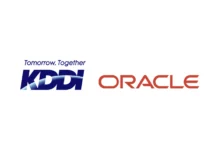As Western social media and Internet companies from Facebook Inc. to Groupon Inc. struggle to meet investor expectations with slumping share prices and lackluster earnings, their biggest peer in China is powering ahead.
Tencent Holdings Ltd., China’s leading Internet company listed in Hong Kong that dabbles in everything from online gaming to instant messaging, has seen its share price soar 48% so far this year and now has a bigger market capitalization than Facebook Inc. When it reports earnings on Wednesday, analysts expect that it will continue to show healthy revenue and profit growth, despite slowing online advertising outlays on the back of the softening Chinese economy.
Tencent has no obvious counterpart among the U.S. Internet giants. The Shenzhen-based company’s business portfolio is a hodgepodge of various services that are somewhat similar to those of several U.S. firms such as Yahoo Inc., Google Inc., Facebook, Twitter Inc. and social-game developer Zynga Inc. The result: a veritable Internet conglomerate the likes of which does not exist in the U.S. or Europe.
Tencent was founded in 1998 during the heyday of instant messaging services like AOL Instant Messenger, and first gained an online presence with its own instant messaging platform. Since then, Tencent has used its strength in chat–in the first quarter about 750 million monthly active users used its service–to drive traffic to new products, like video games and social media sites.
China, the world’s biggest market for online businesses, is home to about a quarter of the world’s Internet users, according to the International Telecommunication Union. But the market is largely dominated by Chinese players due in part to government regulation that restricts activities by U.S. giants like Google and Facebook.
Tencent’s blend of services and the success of its online gaming business has given the company breathing room during times of sluggish advertising demand in China, and has also made the company more willing to take risks and launch new services.
The company currently offers games that are among the most-played in all categories, from massive online role-playing games to first-person shooters and casual games. In the first quarter, Tencent generated more than half of its overall revenue from its online gaming service, while advertising revenue accounted for only 6% of its overall revenue.
“Not only does Tencent have a cash cow in its strong gaming business, but the company is also best-positioned in high-potential markets like social media and mobile Internet services,” said Jefferies analyst Cynthia Meng, who has a Buy rating on Tencent’s stock. Tencent now has a market capitalization of $54.79 billion, larger than Facebook Inc.’s $46.28 billion.
Tencent’s stable revenue from its gaming business has allowed the company to invest in areas where it sees long-term potential growth without worrying too much about short-term profits. The company has been pushing into the e-commerce market to compete against already-established players like Alibaba Group and 360buy.com. In May, Tencent set up a wholly-owned unit to run its nascent e-commerce operations.
Tencent is expected to report that its net profit for the three months ended June 30 rose more than 30% from a year earlier to $477 million based on the average forecast of 12 analysts polled by FactSet. Sales likely rose to $1.59 billion from $1.04 billion, according to the poll.
Tencent declined to comment on its earnings.
Although analysts have remained worried about the short-term impact on its margins as Tencent moves into more capital-intensive Internet commerce, it has nonetheless set about integrating its e-commerce platforms and leasing warehouses to hold some electronics products which it is distributing directly with its new platform. According to the company, the idea is that a greater control over user experience will lure some users to their site.






















